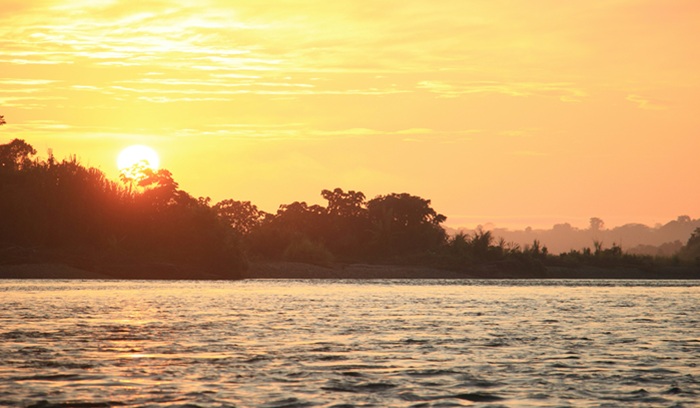Brazil has achieved a major victory for environmental law and the Amazon ecosystem. Government enforcement teams successfully dismantled and destroyed hundreds of illegal gold mining dredges and associated infrastructure. This large-scale operation represents a serious, sustained crackdown on illegal mining activities. It provides crucial protection for the forest, vital waterways, and Indigenous communities.
This decisive action reinforces Brazil’s commitment to curbing illegal deforestation and environmental crime. It sends a strong signal that the government is prioritizing the long-term health of the Amazon.
A Triumph for Environmental Law Enforcement
The core good news of this operation is the success of coordinated law enforcement. Federal police, environmental agencies, and the armed forces worked together to target sophisticated mining operations. These illegal miners often operate in remote, protected territories, including Indigenous lands. Dismantling hundreds of dredges—which are large, motorized rafts used to vacuum riverbeds for gold—removes the primary tool of destruction.
This persistent enforcement action is essential for restoring the rule of law in the Amazon. It demonstrates that the government is effectively using its resources to protect national heritage. This successful operation disrupts the criminal networks that finance the illegal gold trade.
Protecting Waterways from Toxic Mercury
The crackdown is a massive win for public health and aquatic life. Illegal gold mining relies on mercury to separate gold from sediment. This practice releases the highly toxic neurotoxin directly into rivers. Mercury contaminates the entire food chain, posing severe health risks to downstream communities that rely on fish for protein.
By destroying the dredges, the government is removing the source of this mercury contamination. This action immediately begins the slow, necessary healing process for the Amazon’s waterways. Protecting these rivers is vital for the health and food security of Indigenous peoples who live along them. The long-term health benefits of reducing mercury exposure are substantial. You can find more information on the health impacts of mercury from the World Health Organization (WHO).
Restoring Indigenous Lands and Biodiversity
The enforcement operation focused heavily on removing invaders from legally protected Indigenous Territories. This action upholds tribal sovereignty and protects the land rights of Indigenous communities. The removal of illegal miners allows these communities to resume traditional stewardship of their ancestral lands. Their traditional knowledge is crucial for the long-term ecological recovery of the forest.
Illegal mining destroys riparian habitat and causes massive soil erosion. Removing the illegal structures allows the forest and riverbanks to begin regeneration. This restoration of habitat is key to supporting the immense biodiversity of the Amazon. Brazil’s commitment to protecting these territories is a powerful affirmation of human rights and environmental justice. The Articulação dos Povos Indígenas do Brasil (APIB) advocates for the protection of these rights.
A Foundation for Sustainable Development
This large-scale crackdown is a critical component of Brazil’s national commitment to climate action. Reducing deforestation and restoring degraded lands are essential for meeting the nation’s climate goals. This positive momentum enhances Brazil’s standing as a leader in environmental policy. It proves that decisive action can reverse environmentally destructive trends.
The success attracts international support and investment into sustainable economic alternatives. This includes ecotourism, sustainable forestry, and agroforestry projects that benefit local populations. The Brazilian Ministry of Environment and Climate Change provides policy updates on these enforcement actions. The UN Food and Agriculture Organization (FAO) supports sustainable livelihood alternatives to illegal mining.
Resources
- World Health Organization (WHO) on Mercury and Health
- Articulação dos Povos Indígenas do Brasil (APIB) Official Website
- Brazilian Ministry of Environment and Climate Change on Amazon Enforcement
- UN Food and Agriculture Organization (FAO) on Sustainable Livelihoods
More Good News
-

Senegal launches all-electric bus network powered by renewable energy
Senegal has successfully launched a transformative Bus Rapid Transit system in Dakar, featuring a fleet of 121 fully electric buses. As the first network in Sub-Saharan Africa to operate entirely on renewable energy, the initiative utilizes local solar power to transport up to 300,000 passengers daily. By utilizing dedicated lanes, the clean energy fleet cuts cross-city commute times in half while preventing nearly 60,000 tons of carbon dioxide emissions annually. This monumental project dramatically improves urban air quality and establishes Senegal as a pioneering leader in sustainable, green public infrastructure.
-

Yangtze River showing remarkable ecological recovery following fishing ban
China’s Yangtze River is experiencing a remarkable ecological revival five years into a sweeping ten-year commercial fishing ban. Recent surveys reveal significant increases in overall fish biomass and the heartening return of critically endangered species in the world’s fifth largest river. Furthermore, thousands of former commercial fishers have been successfully transitioned into new roles as official river guardians. This massive conservation effort offers a hopeful, replicable model for global freshwater restoration.
-

Rob Jetten becomes The Netherland’s first openly gay prime minister
In a historic victory for representation and progressive politics, Rob Jetten has been sworn in as the first openly gay Prime Minister of the Netherlands. At 38 years old, the centrist Democrats 66 leader is also the youngest head of government in Dutch history. Jetten successfully formed a minority coalition government following a tense election that defeated far-right populist opponents. His platform prioritizes climate investment, economic fairness, and strong international collaboration. Jetten’s premiership powerfully reaffirms the Netherlands’ global legacy as a pioneer of LGBTQ+ equality and inclusive, cooperative democratic leadership.
-

Millions of New York City workers gain additional time off through new law
Millions of workers in New York City are benefiting from a major expansion of the Protected Time Off Law, which officially took effect in late February 2026. The progressive legislation grants employees an additional 32 hours of unpaid, protected leave that is available immediately upon hire or at the start of the calendar year. This ensures workers do not have to wait to accrue hours before addressing sudden medical emergencies or family crises. The law also vastly expands permitted uses to include mental health care, public disaster recovery, and caring for disabled loved ones.
-

Malaysia bans electronic waste imports to protect the environment and public health
In a monumental victory for public health and environmental justice, Malaysia has enacted an immediate and absolute ban on the importation of electronic waste. By removing regulatory loopholes and launching a strict enforcement campaign, the nation is successfully preventing toxic heavy metals from polluting its soil and waterways. Authorities have already intercepted hundreds of thousands of kilograms of illegal e-waste at major ports, vowing to return the hazardous materials to their countries of origin. This decisive action establishes Malaysia as a leading force in Southeast Asia’s growing movement to reject global waste and prioritize ecological sustainability.
